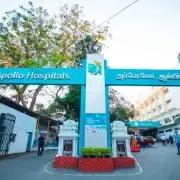Choosing Quality Hospitals and Doctors Abroad
In This Article
Choosing Quality Hospitals and Doctors Abroad
Elena
Updated on October 23, 2024
Medically verified by Dr. Arya
Fact checked by Dr. Fazeela

Medical Travel
10 minutes
When planning for medical treatment abroad, selecting a reputable hospital and experienced doctors is crucial for both safety and successful outcomes.
Whether you're seeking advanced care or affordable procedures, knowing how to choose the right medical providers can help you avoid pitfalls and ensure quality treatment.
In this guide, karetrip provides a step-by-step approach to help you make informed decisions when choosing hospitals and doctors in foreign countries.
1. Research the Destination’s Medical Infrastructure
Before deciding on a country for your medical treatment, it's essential to understand its healthcare system and medical infrastructure. Some countries have a robust medical framework, with advanced hospitals and well-trained doctors, while others may lack necessary resources.
Countries like India, Thailand, Turkey, and Mexico have emerged as popular destinations for medical tourism, offering world-class facilities at a fraction of the cost compared to countries like the United States or the United Kingdom.
To begin your research, explore
-
International hospital accreditation agencies, such as the Joint Commission International (JCI), which certify hospitals for quality and safety.
-
The country's medical tourism associations, which can offer lists of certified hospitals and specialists.
-
Patient reviews and success stories from previous medical tourists.
2. Check for Hospital Accreditation and Certifications
One of the easiest ways to ensure you're choosing a high-quality hospital is to check its accreditation. Accreditation ensures that the hospital meets international standards of care, safety, and hygiene. Joint Commission International (JCI) and the International Organization for Standardization (ISO) are two widely recognized bodies that assess and certify hospitals worldwide.
When researching hospitals, look for
-
JCI accreditation, which is recognized globally for healthcare quality.
-
National accreditations and certifications, which may indicate that the hospital complies with local regulations.
-
Specialized certifications in areas like cardiology, oncology, or orthopedics if you're seeking treatment in these fields.
3. Evaluate the Hospital’s Specializations and Expertise
Hospitals often have areas of specialty based on the kind of treatments they are known for. For example, some hospitals may specialize in oncology, while others are renowned for cardiac care or orthopedics. It’s vital to choose a hospital that is well-regarded for the specific treatment or surgery you need.
To evaluate hospital expertise
-
Look for centers of excellence in specific medical areas.
-
Review hospital rankings from international platforms like Newsweek or the Medical Tourism Association.
-
Explore case studies or reviews of patients who have undergone similar treatments.
4. Assess the Credentials and Experience of Doctors
After narrowing down hospitals, it’s time to focus on selecting the right doctor. The doctor’s experience and expertise are as crucial as the hospital’s reputation. A well-trained and experienced doctor can make all the difference in your treatment outcome.
When assessing doctors, consider
-
Their educational background and where they completed their training.
-
Specialization and years of experience in the field.
-
Membership in reputable medical organizations or societies, such as the American Medical Association (AMA) or the European Society of Cardiology.
-
Publications in peer-reviewed journals, which indicate ongoing contributions to medical research.
5. Review the Doctor’s Communication Skills and Language Proficiency
Effective communication between doctor and patient is vital for successful treatment. Language barriers can lead to misunderstandings, misdiagnoses, or inadequate aftercare.
Before choosing a doctor abroad, ensure that they speak a language you're comfortable with or have access to a reliable medical interpreter.
To assess communication
-
Schedule a virtual consultation to gauge the doctor's communication style.
-
Check if the hospital provides translation services during your treatment and follow-ups.
-
Ask previous international patients about their experience with the doctor’s communication and attentiveness.
 10 min Read
10 min ReadBooking Budget Friendly Accommodation Near Apollo Hospital, Greams Road
 10 min read
10 min readWhere can I exchange Bangladeshi Taka To Indian Rupees?
 10 min read
10 min readUnique Bangalore: Unusual & Intriguing Places to Explore While Staying In The City For Treatment
Get a Callback Now
6. Understand the Hospital’s Facilities and Technology
Advanced technology and state-of-the-art facilities are indicators of a hospital’s capability to offer high-quality care. Modern medical equipment can lead to more accurate diagnoses and minimally invasive procedures, which often result in quicker recovery times.
When researching hospital facilities, look into
-
The availability of advanced diagnostic tools, such as MRI machines, robotic surgery units, or digital pathology systems.
-
Special care units, such as intensive care units (ICUs) and neonatal intensive care units (NICUs), if relevant to your needs.
-
The hospital's infrastructure for international patients, such as private rooms, accommodation arrangements, and access to international cuisine.
7. Consider Aftercare and Follow-Up Treatment
Aftercare is a critical aspect of medical treatment, particularly if you're undergoing surgery or long-term therapy. Ensuring that the hospital has a well-structured aftercare program is vital for your recovery and overall experience.
For aftercare
-
Ask about the hospital's post-treatment services, such as rehabilitation, physical therapy, or follow-up appointments.
-
Check if the hospital offers telemedicine options for remote consultations after you return home.
-
Investigate whether the hospital has affiliations with local medical centers in your home country for ongoing follow-ups.
8. Compare Costs and Payment Methods
While affordability is one of the main reasons patients seek treatment abroad, it’s important to understand all the costs involved. The price of medical procedures can vary widely between countries, and even between hospitals in the same country. Be sure to ask for a breakdown of costs and what is included in the price.
When comparing costs
- Ask for itemized estimates of treatment, hospital stay, medication, and aftercare.
-Clarify if the costs include accommodations for accompanying family members.
- Check the hospital’s policies on payment methods and insurance coverage, especially if you plan to use international insurance.
9. Verify the Hospital’s Reputation with Medical Tourism Agencies
Many countries have medical tourism agencies that can help you find reputable hospitals and doctors. These agencies often work with internationally accredited hospitals and can provide assistance with travel, accommodation, and treatment arrangements.
To verify hospital reputation
-
Contact the country’s official medical tourism board for recommendations.
-
Ask the agency for case studies or testimonials from international patients.
-
Use medical tourism facilitators who have established relationships with hospitals and can help guide you through the entire process.
10. Factor in Travel Logistics and Support Services
Finally, it’s important to consider travel logistics and support services available at the hospital. This includes visa requirements, travel insurance, and any special services offered for international patients.
To manage travel logistics
-
Check if the hospital provides airport transfers, translators, and patient coordinators.
-
Investigate accommodation options near the hospital, especially if you’re traveling with family.
-
Ensure that you have access to emergency services or travel insurance in case of complications during your stay.
Choosing the right hospital and doctor abroad requires thorough research and careful consideration. With the growing popularity of medical tourism, many hospitals and doctors now offer world-class care to international patients.
However, ensuring quality treatment and a smooth experience depends on making informed choices. By evaluating accreditation, expertise, communication skills, and facilities, you can feel confident in your decision to seek medical care abroad.
The information provided represents the views and opinions of Karetrip. It is crucial to conduct your own independent research before making any decisions regarding your healthcare journey.
Research the Medical Infrastructure: Start by understanding the healthcare system of your destination country.
Check Hospital Accreditation: Look for certifications from organizations like JCI and ISO for quality assurance.
Evaluate Hospital Specializations: Choose a hospital with a strong reputation in the specific area of treatment.
Assess Doctor Credentials: Investigate the doctor's education, experience, and membership in medical societies.
Consider Communication: Ensure the doctor speaks a language you're comfortable with or offers translation services.
Examine Hospital Facilities: Advanced medical technology and infrastructure indicate a hospital’s capability.
Review Aftercare Plans: Post-treatment care and follow-up services are critical for recovery.
Compare Costs: Get detailed cost estimates and confirm accepted payment methods and insurance.
Use Medical Tourism Agencies: Seek recommendations from reputable agencies specializing in medical tourism.
Plan for Travel Logistics: Consider travel arrangements, accommodations, and emergency support services.
Source Links
Joint Commission Internationa
Medical Tourism Association


